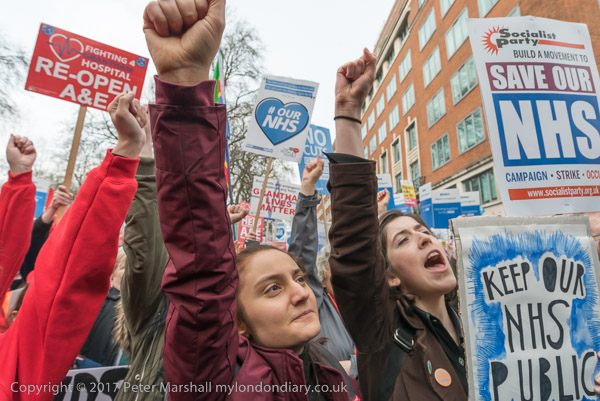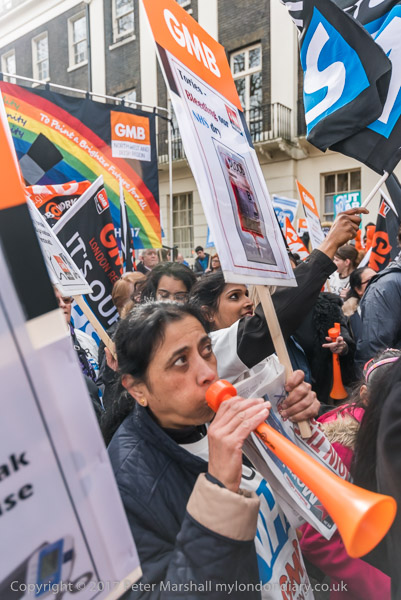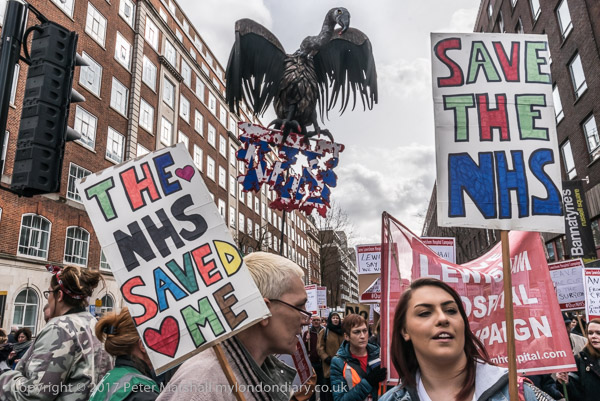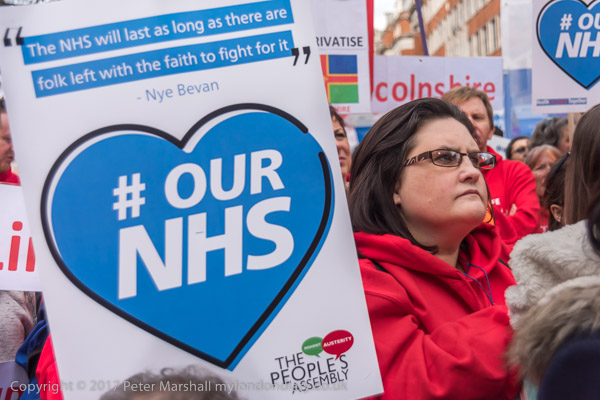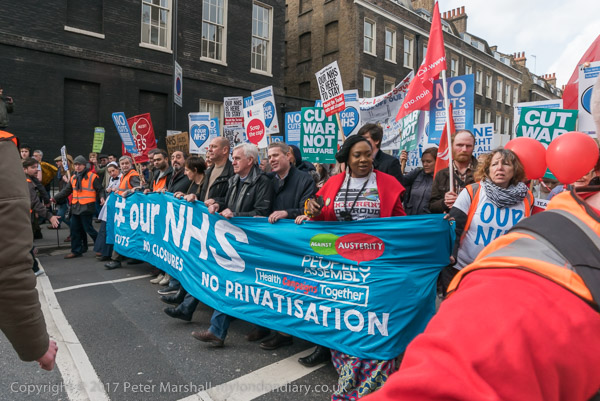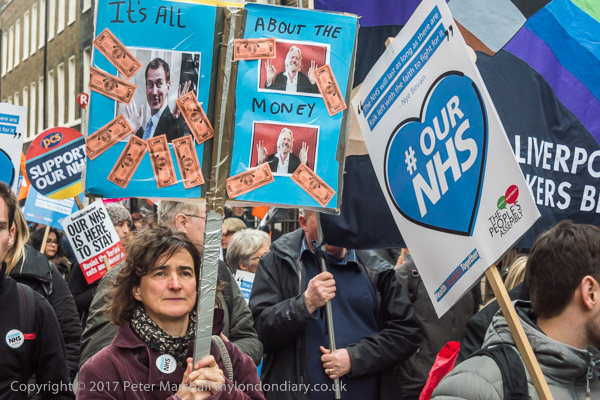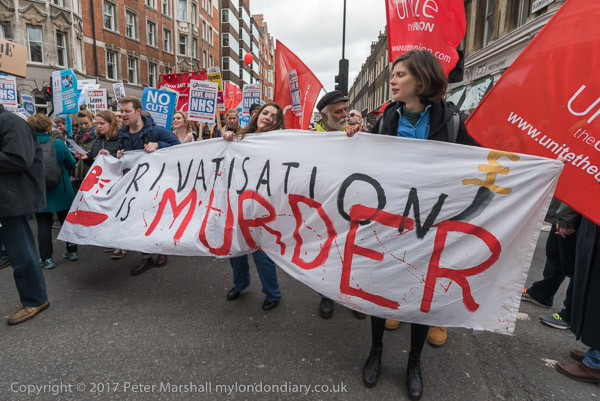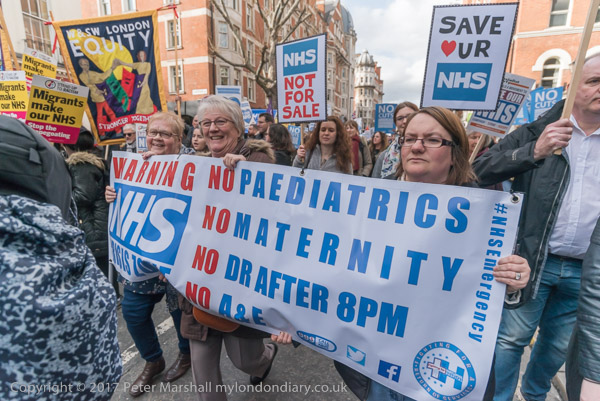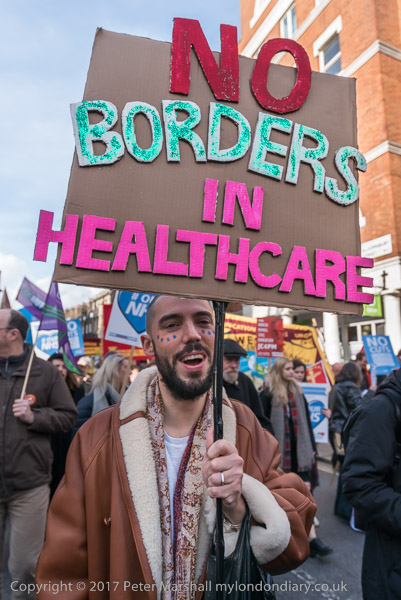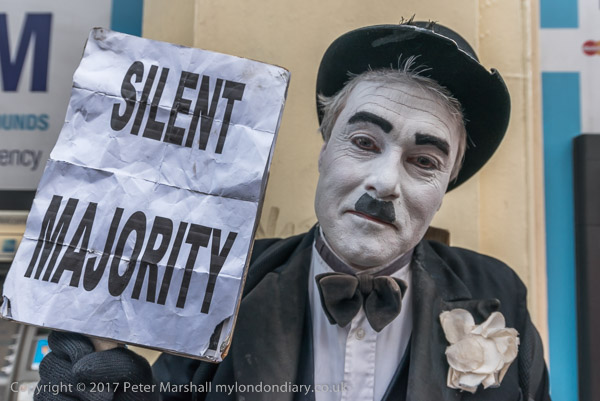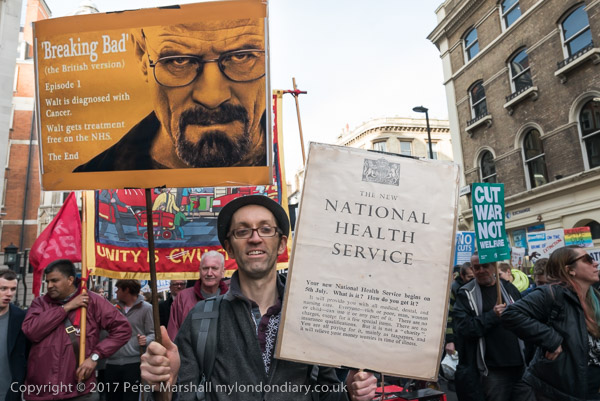NHS – Free, For All, Forever?. Five years ago on Saturday 30th June thousands marched through London to celebrate 70 years of the National Health Service, which began on 5th July 1948. In a few days we will celebrate the 75 anniversary. The pictures here are from that march.

A few days ago the Kings Fund published their report comparing the NHS to health care systems of other countries. It made depressing reading, but its findings were already well-known – and the result of government policies over the years.
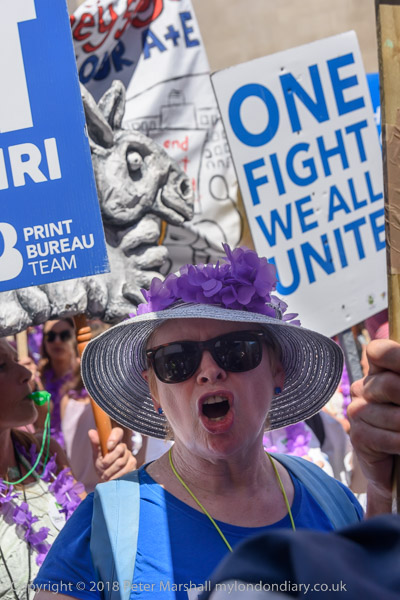
Conservatives were opposed to the setting up of the NHS and voted against it on numerous occasions when Aneurin Bevan was campaigning for its setting up and taking the bill through parliament. Bevan established the three basic ideas, that it should benefit everyone, that healthcare would be free and that care would be provided on the basis of need rather than ability to pay.
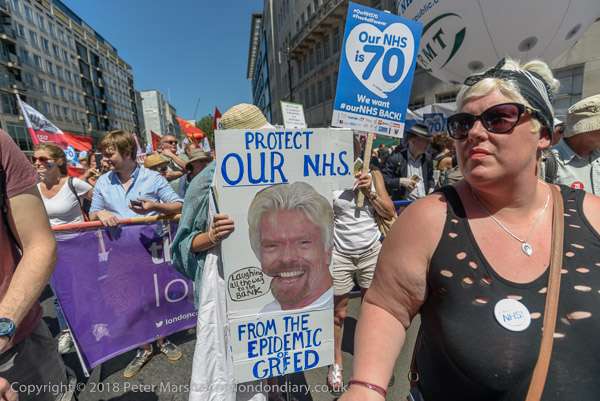
Many doctors and dentists were opposed to the new system, which they saw as a threat to their lucrative private practices and this led to a number of compromises which have had serious consequences over the years.
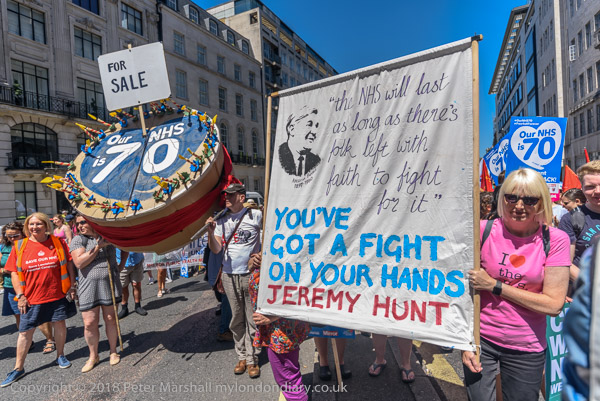
Dentistry has never really been made properly a part of our health care system and now large areas of the country have few if any dentists who will take on NHS patients. Private medicine has continued and grown parasitically on the NHS – who train those working in it, while it now gets paid by the NHS to provide many of the simpler aspects of treatment while leaving the heavy lifting to our public service.
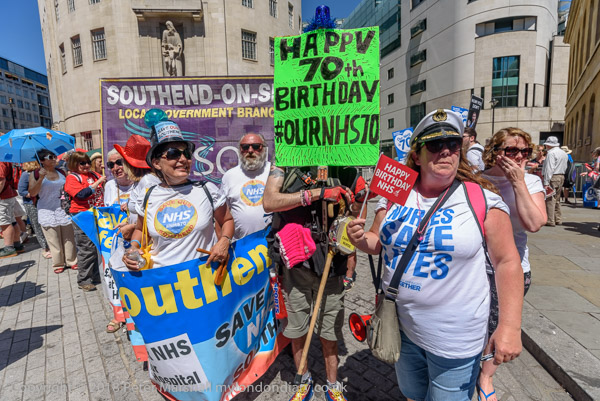
Both Conservative and Labour governments since its formation have made changes which have diluted Bevan’s principles. Contracting out of various services began under the Tories, sometimes resulting in disastrous lowering of standards. Proper cleaning services etc are essential in hospitals.
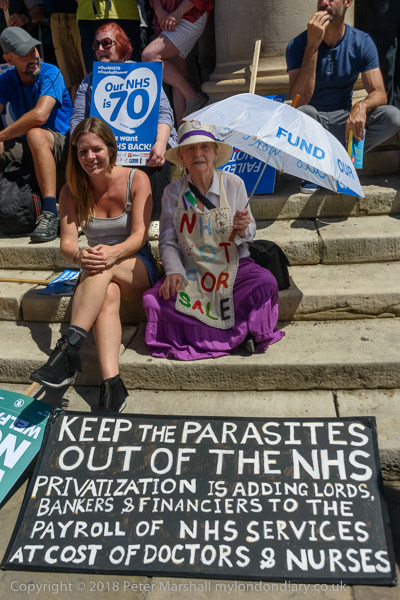
New Labour brought in Private Finance Initiative projects (they borrowed the idea from the Tories) which have led to huge ongoing debts for some NHS trusts – and closures of some vitally needed hospital departments to meet these.
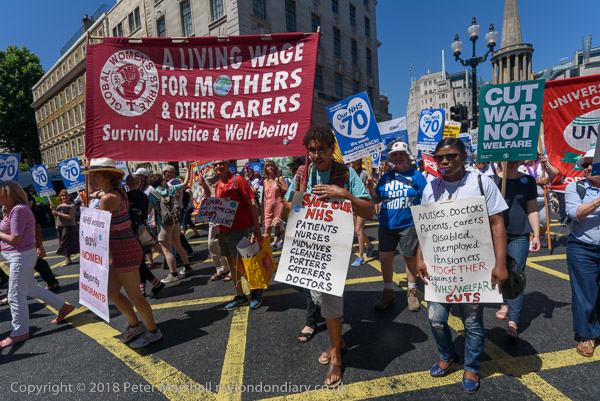
Since the Coalition and then the Tories came back into power there has been a huge increase in the creeping privatisation of the NHS, with Andrew Lansley’s 2012 Health and Social Care Act forcing the NHS into a market-based model based on competitive tendering, which even his successor as Health Minister, Jeremy Hunt has described parts of as ‘frankly, completely ridiculous’. So much so that even the Tories have no had to row back a little.
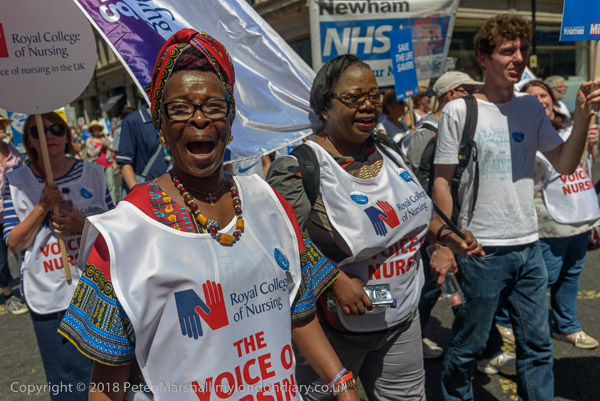
The King’s Fund report makes clear that “The UK has below-average health spending per person compared to peer countries” and it “lags behind other countries in its capital investment, and has substantially fewer key physical resources than many of its peers, including CT and MRI scanners and hospital beds.”
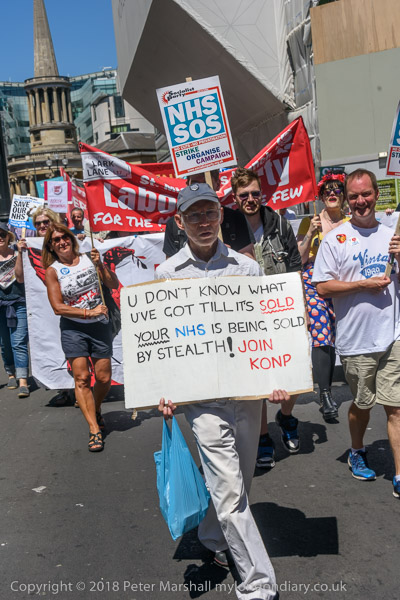
Successive governments have prevented the training in the UK from expanding the numbers of university places for medical training, and a few years ago the Tories removed the bursaries available for nurses. Since the start of the NHS this had been a failure, and as the report states there are now “strikingly low levels of key clinical staff, including doctors and nurses” and the NHS is “heavily reliant on foreign-trained staff.” Only in recent days have we seen an effort by government to put forward plans to address the issue – and almost certainly one that is inadequate.
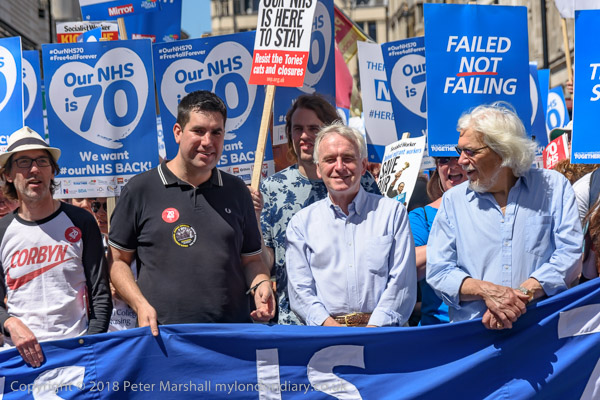
There is also the question of pay, brought to the fore in recent months by strikes by nurses and doctors. The government’s response has mainly been to refuse to enter into meaningful talks and mutter about the impossible demands being made.
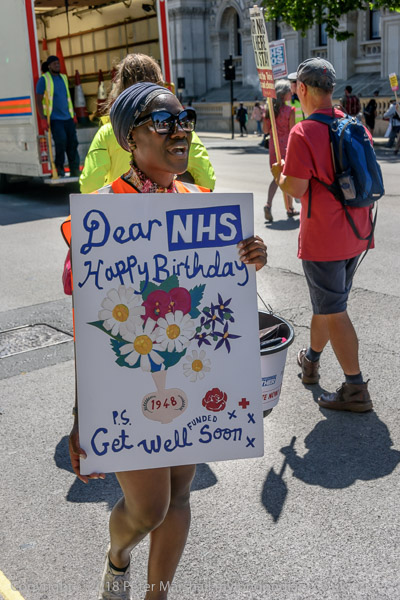
Of course nobody expects junior doctors to get a 35% rise, but all that it would take to resolve the dispute is a much lower figure, combined with a commitment to make a small above inflation increase in a number of following years to reduce the gap that has opened up.
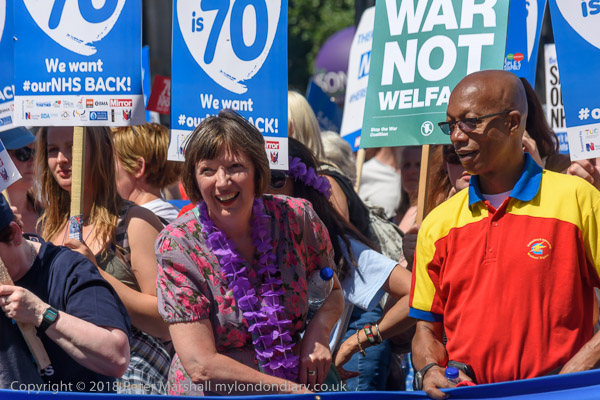
You can read more about the march and rally and some of the issues in my post on My London Diary from June 2018, which also includes some information about the interests or many MPs and peers in private healthcare and connections to those wanting to see the NHS abolished. It may be ‘OUR NHS’ but many of those who have power to determine its future want it to belong to them.
And of course, many more pictures at NHS at 70 – Free, for all, forever.
